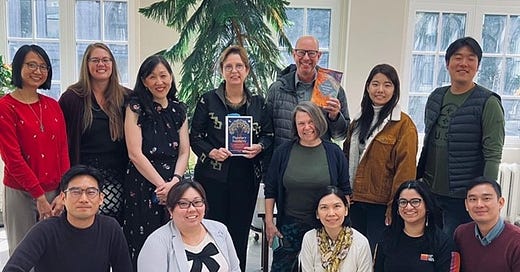Book Review of "Invisible"
A few years ago, I was invited to be an external examiner for Fiona Li, an MA student at the University of St. Michael’s College. I agreed to be her external examiner and it was really nice to meet her in person when I spoke at the University of St. Michael’s College in Fall 2022.
Fiona Li is now a Ph.D. student and she reviewed my book, Invisible for t…
Keep reading with a 7-day free trial
Subscribe to Loving Life to keep reading this post and get 7 days of free access to the full post archives.




